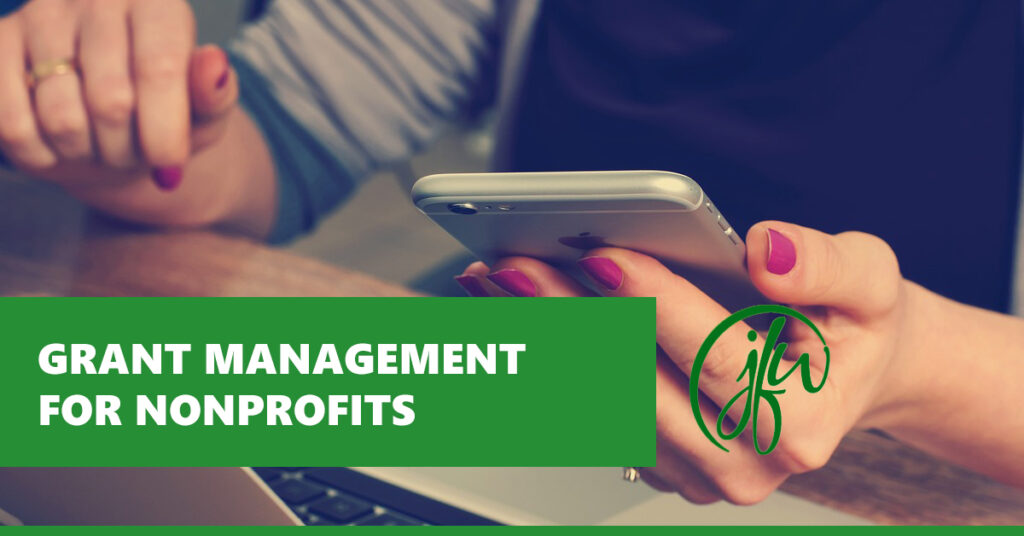Effective grant management plays a critical role in the health and efficacy of your nonprofit organization accounting. Donors are entrusting your organization with significant funding, and they expect you to be a good steward of that money. By using your funding wisely, it will be easier to garner ongoing support from donors and incentivize grantmakers to give more.
With that in mind, here are five tips to simplify grant management for nonprofits:
- Identify Funding Opportunities
- Write Exceptional Proposals
- Follow Through and Maintain Detailed Records
- Use Tech to Simplify Compliance
- Communicate Effectively With Funders
Identify Funding Opportunities
Before you seek grants, it’s vital to identify funding opportunities that align with the mission of your nonprofit. Consider factors such as:
- How much you need
- How those resources will help you achieve your goals
- What you will do with the funding if you receive it
You cannot simply find entities that have grant programs available. It’s best to prioritize those that historically support nonprofits similar to yours.
Additionally, keep in mind that some entities require you to submit a Letter of Inquiry (LOI) before they will accept a formal proposal. Make sure that you carefully review each grantmaking institution’s submission instructions.
Write Exceptional Proposals
After you’ve identified opportunities that align with the spirit and mission of your nonprofit, you’ll need to craft a dynamic proposal to make your request stand out. Ensure that your proposal addresses all points of the grantmaking institution’s instructions (i.e., length and structure) and outlines how you intend to use the money to support your cause.
A great proposal will feature the following elements:
- A clear objective
- An outline for using the money
- Projections of the potential impact of the money
- Supporting evidence to justify your funding allocation
If you are applying for a grant with unique conditions or stipulations, you must outline how your nonprofit meets those criteria as well.
Follow Through and Maintain Detailed Records
During the award phase, the funder will review your proposal and may ask you to participate in an interview process. You can prepare for that interview by gathering supporting documentation and ensuring your presentation is engaging. If you participate in multiple interviews, you must tailor your presentation for each institution.
If you are selected to receive funding, ensure that your nonprofit carefully documents every transaction involving that money, including when you receive the funding, what expenses you are covering with the money, and any relevant transactions. You will need to submit such documentation to ensure compliance with grant requirements and demonstrate that you are a good steward of the funding.
Use Tech to Simplify Compliance
Each grant comes with specific requirements and conditions that must be met. Make sure that you understand and adhere to the varying rules for each grant so you can avoid issues and ensure continued support. You’ll also want to periodically review compliance with the requirements of each issuing organization and promptly address any potential challenges so you can maintain good relations with grantmaking institutions.
Technology can be invaluable in keeping up with things like reporting deadlines and varying grant regulations. Reporting tools can automate filing processes and make it easier for your team to manage various funding sources. You can also use specific software to track your expenditures and prepare reports for grantmaking entities. Learn more: Sage Intacct for Nonprofits
Communicate Effectively With Funders
Grantmaking institutions are your nonprofit’s greatest ally, which means you need to proactively cultivate positive relationships with them before, during, and after the award phase. A lack of communication in the post-funding phase of your relationship, in particular, can discourage grantmaking entities from supporting your nonprofit in the future.
Keep your supporters apprised about the progress of major projects and showcase the impact of the money they have provided. But don’t do the bare minimum. Go above and beyond to demonstrate that you appreciate their support and are putting the funds to good use.
Be honest about setbacks and challenges as well. It’s important to exhibit transparency, even if your nonprofit has not made as much progress as initially projected in your grant proposal.
Implement These Strategies to Promote Nonprofit Efficacy
Grant management for nonprofits requires a proactive approach. Use these best practices to make the most of the funding you’ve been entrusted with and strengthen the relationships you develop with those who have provided your organization with financial resources.

Jo-Anne Williams Barnes, is a Certified Public Accountant (CPA) and Chartered Global Management Accountant (CGMA) holding a Master’s of Science in Accounting (MSA) and a Master’s in Business Administration (MBA). Additionally, she holds a Bachelor of Science (BS) in Accounting from the University of Baltimore and is a seasoned accounting professional with several years of experience in the field of managing financial records for non-profits, small, medium, and large businesses. Jo-Anne is a certified Sage Intacct Accounting and Implementation Specialist, a certified QuickBooks ProAdvisor, an AICPA Not-for-Profit Certificate II holder, and Standard for Excellence Licensed Consultant. Additionally, Jo-Anne is a member of American Institute of Certified Public Accountant (AICPA), Maryland Association of Certified Public Accountants (MACPA), and Greater Washington Society of Certified Public Accountants (GWSCPA) where she continues to keep abreast on the latest industry trends and changes.

